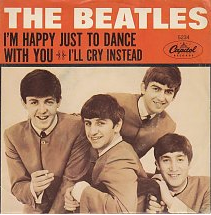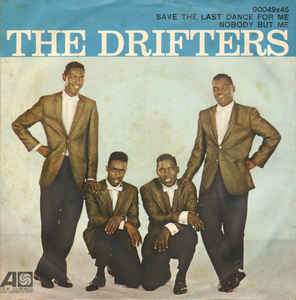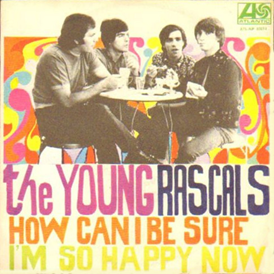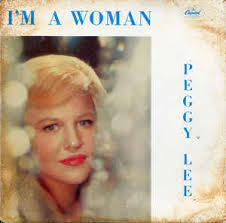
"Me and Bobby McGee" is a song written by American singer-songwriter Kris Kristofferson and originally performed by Roger Miller. Fred Foster shares the writing credit, as Kristofferson wrote the song based on a suggestion from Foster. A posthumously released version by Janis Joplin topped the Billboard Hot 100 in 1971, making the song the second posthumously released No. 1 single in U.S. chart history after "(Sittin' On) The Dock of the Bay" by Otis Redding. Gordon Lightfoot released a version that reached number 1 on the Canadian country charts in 1970. Jerry Lee Lewis released a version that was number 1 on the country charts in December 1971/January 1972 as the "B" side of "Would You Take Another Chance on Me". Billboard ranked Joplin's version as the No. 11 song for 1971.

"I'm Happy Just to Dance with You" is a song written by John Lennon and Paul McCartney and recorded in 1964 by the English rock band the Beatles for the film soundtrack to A Hard Day's Night. Lead vocals are by George Harrison, whose performance in the film marked the first mass media depiction of Harrison singing lead.

"I Can Hear Music" is a song written by Jeff Barry, Ellie Greenwich and Phil Spector for American girl group the Ronettes in 1966. This version spent one week on the Billboard Pop chart at number 100. In early 1969, the Beach Boys released a cover version as a single from their album 20/20 (1969), peaking at number 24 in the US.
"Chapel of Love" is a song written by Jeff Barry, Ellie Greenwich and Phil Spector, and made famous by The Dixie Cups in 1964, spending three weeks at number one on the Billboard Hot 100. The song tells of the happiness and excitement the narrator feels on her wedding day, for she and her love are going to the "chapel of love", and "[they'll] never be lonely anymore." Many other artists have recorded the song.

"Save the Last Dance for Me" is a song written by Doc Pomus and Mort Shuman, first recorded in 1960 by American musical group the Drifters with Ben E. King on lead vocals. It has since been covered by several artists, including the DeFranco Family, Dolly Parton, and Michael Bublé.

"Oh Girl" is a song written by Eugene Record and recorded by American soul vocal group the Chi-Lites, with Record on vocals and also producing. It was released as a single on Brunswick Records in 1972. Included on the group's 1972 album A Lonely Man, "Oh Girl" centers on a relationship on the verge of break-up.

"How Can I Be Sure" is a popular song written by Felix Cavaliere and Eddie Brigati, and originally recorded by the Young Rascals for their 1967 album Groovin' with a single release in August 1967 affording the group their fourth Top 10 hit.

"Another Saturday Night" is a 1963 hit single by Sam Cooke from the album Ain't That Good News. The song was written by Cooke while touring in England when staying in a hotel where no female guests were allowed. It reached No. 10 on the Billboard Hot 100 and was No. 1 on the R&B chart for a single week. In the UK, the song peaked at No. 23 on the UK Singles Chart. In Canada it reached No. 30.

"This Magic Moment" is a song composed by lyricist Doc Pomus and pianist Mort Shuman. It was first recorded by The Drifters, with Ben E. King singing lead.
"Is That All There Is?" is a song written by the American songwriting team Jerry Leiber and Mike Stoller. It became a hit for the American singer Peggy Lee in 1969. The song was originally performed by Georgia Brown in May 1967 for a television special. It was first recorded by disc jockey Dan Daniel in March 1968, but this was an unauthorized recording that went unissued at the songwriters' request. The first authorized recording was by Leslie Uggams in August 1968.

"This Masquerade" is a song written by American singer and musician Leon Russell. It was originally recorded in 1972 by Russell for his album Carney and as a B-side for the album's hit single "Tight Rope". The song was then covered on Helen Reddy's 1972 album, I Am Woman. It was then recorded by American vocal duo, the Carpenters, for their 1973 album Now & Then and as the B-side of the Carpenters's single "Please Mr. Postman". Three years later, "This Masquerade" was recorded by American singer and guitarist George Benson, who released it on his 1976 album, Breezin'. Benson's version, featuring Jorge Dalto on piano, was released as a single and became the first big hit of his career.

The song "I'm a Woman" was written by famed songwriting duo Jerry Leiber and Mike Stoller, and was first recorded in 1962 by Christine Kittrell.

"Who Loves You" is the title song of a 1975 album by The Four Seasons. It was composed by Bob Gaudio and Judy Parker and produced by Gaudio. It reached number 3 on the Billboard Hot 100 in November 1975.

"I Keep Forgettin' (Every Time You're Near)" (also known as "I Keep Forgettin'") is a 1982 song by American singer-songwriter Michael McDonald, from his debut album If That's What It Takes (1982). It was written by McDonald and Ed Sanford. Released as a single, it peaked at No. 4 on the U.S. Billboard Pop Singles charts, #7 R&B and #8 on the Adult Contemporary chart.

"Love Ballad" is a song by R&B/Funk band L.T.D. Jeffrey Osborne is the lead singer.

"I Believe You" is a love ballad composed by Don and Dick Addrisi which was a 1977 single for Dorothy Moore; taken from her self-titled Dorothy Moore album. "I Believe You" reached #5 R&B and crossed over to the US Pop Top 30 at number 27. The track also reached number 20 in the UK.

"D.W. Washburn" is a song written by Jerry Leiber and Mike Stoller, recorded by both the Coasters and the Monkees. It was also included in the musical Smokey Joe's Cafe (revue).

"Real Love" is a hit song by The Doobie Brothers, the first of three singles from their 1980 LP, One Step Closer.
"Chains Of Love", a 12-bar blues, was written by Doc Pomus.

"Keep Your Eye on the Sparrow", also known as "Baretta's Theme", is a song written by Morgan Ames and Dave Grusin, recorded by multiple artists during the summer of 1975. Merry Clayton's version was the first to chart, reaching #45 on the U.S. Billboard Hot 100.

















